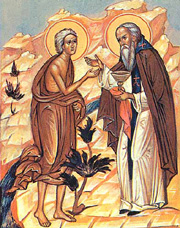 by Fr. Alexander Men –
by Fr. Alexander Men –
On the fifth Sunday of Great Lent the Church celebrates the memory of St. Mary of Egypt, the holy ascetic struggler, who is an image of the deep and sincere repentance that brings forth great fruit.
All of you will remember her life. You will recall that her youth was spent in wantonness; that she was a harlot, a courtesan, a fallen woman in a large and depraved city in Egypt; and that she went from being a great sinner to a saint. Yet, regardless of such a manner of life, there was likely some Godly spark in Mary’s heart attracting her to God. She did not understand that she was not living as the Lord’s law or conscience demand. She thought that she was not hurting anyone.
Once a large ship with pilgrims and believers was leaving for the Holy Land, and Mary decided to leave with them. At first it did not even occur to her that this would be a pilgrimage to the holy places. She simply wanted to enjoy herself with the people who were leaving for a journey by ship. [Read more…]

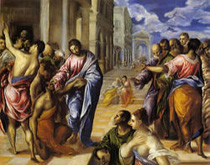 Catholic Online –
Catholic Online –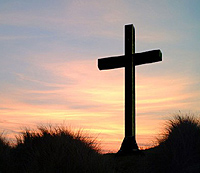 by Daniel Boerman –
by Daniel Boerman – by Dennis Prager –
by Dennis Prager –
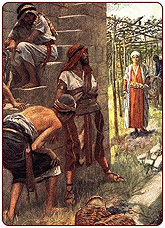 by William Sullivan –
by William Sullivan –
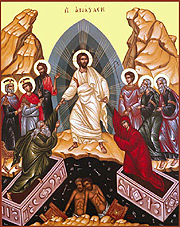 by Mark Tooley
by Mark Tooley